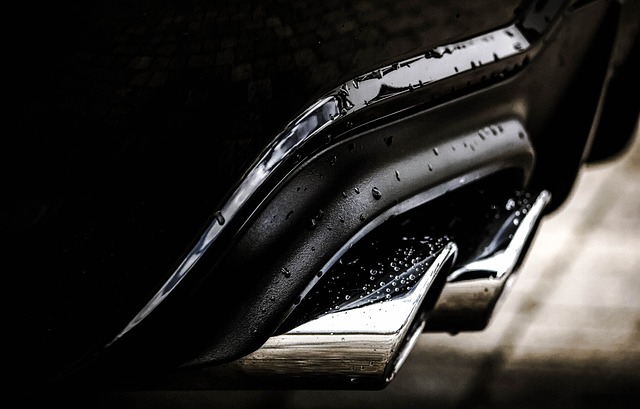Trials of ‘noise cameras’ are about to begin, aimed at reducing the nuisance caused by excessively loud vehicles. Will petrolheads be weeping bitter tears? Is another culture war about to break out? It’s time to find out.
You’ve probably come across the incredibly popular Carwow YouTube channel. If so, you’ll know that apart from car reviews, affable Brummie presenter Matt Watson regularly drag races all sorts of exotic and modified vehicles.
Before each race, drivers of each car rev up their engines, so viewers can compare the exhaust and engine sounds. And there, in a nutshell, is a key part of driving enthusiast culture.
For many petrolheads, how a car sounds has long been considered a crucial aspect of its appeal – or otherwise. Motoring journos wax lyrical about an engine’s ‘soundtrack’, and dig into the thesaurus to describe the ‘exhaust note’ — snarling, growling, roaring, screaming, etc. Maybe all those animal-based adjectives are a clue to what’s going on. It’s the noise, petrolheads say, that makes the car feel alive.
However, one person’s mechanical symphony is another’s noise pollution. If you’re not particularly interested in cars (or maybe if you are, but you’re not currently in one), a noisy engine and exhaust can simply be a headache-inducing racket. Although complaints about noisy vehicles are pretty low — about 37 per million residents per year — this may just reflect a public perception that nothing can be done about them. Polls suggests about a quarter of the populations per cent are bothered by traffic noise — though what proportion of that is down to excessively loud cars is impossible to say.
Noise law, noise reality.
Legislation already limits how much noise a vehicle is allowed to make. The Road Traffic Act 1988 (Section 42) stipulates that exhausts and silencers must be in good working order. In addition, as gov.uk tells us:
It’s illegal to modify the exhaust system to make a vehicle noisier after it has been ‘type approved’
The UK’s noise limit is set at 72dB, which matches current EU legislation for new vehicles. In addition, police have the discretion to issue a £50 fine if they judge that a motorbike or car is excessively loud.
How effective are these laws? A simple test would be to stand on a bridge over any urban A road. If you count how many ear-assaulting modified exhausts go past in an hour, you discover that they’re not exactly rare.
But before we heap all the blame on car modders, consider the results of a trial conducted by Kensington and Chelsea Borough Council, where modded Corsas and Fiestas are in short supply. According to John Burgess at Hagerty.co.uk:
[The trial] fined nearly 10,000 antisocially driven super cars that have long been the source of noise complaints by residents…The Times reported that, between June 2021 and February 2022, 289 cars were recorded making more than 100 decibels of noise – far beyond the levels in which ‘sustained exposure may result in hearing loss (80-90 dB). The record was set by a Lamborghini at 112.9 decibels, louder than acceptable noise levels set by Motorsport UK for racing vehicles.
Because decibels units are based on a logarithmic scale, it’s hard to get your head around just how loud these cars are. In terms of human perception, 100dB feels about six times as loud as the 72dB limit. The lambo would feel more like eight times louder.
Enter the noise camera
So, enforcing current noise legislation runs into the same old problems. The police may have the powers to prosecute owners of noisy cars, or noisily driven cars, but they often lack the resources.
However, that may soon start to change. Recently, the Department for Transport announced that they were beginning a £300,000 trial of ‘noise cameras’. The first were set up in Keighley, just north of Bradford, followed by other set-ups in Great Yarmouth, Birmingham and South Glucestershire. According to Auto Express:
The devices feature a video camera paired with a series of microphones that are able to accurately pinpoint noisy vehicles that drive past. Cars that are either being revved unnecessarily or have been fitted with illegal exhaust modifications will be automatically detected by the device, which will take a photograph and record the noise level, creating evidence that the local police force can then use to issue a fine.
If successful, the cameras could be rolled out across other locations across the country.
Anne-Marie Trevelyan, the Transport Secretary at the time, was upfront about who was being targeted.
Rowdy road drivers beware – these new cameras will help the police clampdown on those who break the legal noise limits or use illegal modified exhausts to make excessive noise in our communities.
Notice that she didn’t specifically mention, for example, supercar owners redlining their cars on London streets. Why could that be?
That’s something we’ll look more at next time, along with soft limiters and the thorny issue of balancing rights from competing groups. Phew! See you in a fortnight.
The WVS blog covers a wide range of automotive topics, from the contentious to the light-hearted. We are an independent garage specialising in all the VW group marques, including Audi, Volkswagen, Skoda and SEAT. WVS provides services, repairs and MOTs, delivering a main dealer level of care at affordable prices. To book your vehicle in, or for any enquiries, get in touch.


